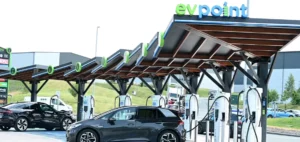TotalEnergies is responsible for the installation and operation of charging stations for electric vehicles in Belgium. The regions that will benefit from these charging points are West Flanders, and Flemish Brabant (towards Brussels).
4,400 charging stations to be installed by 2025
TotalEnergies is investing more and more in renewable energies such as wind and solar power. Enabling the deployment of electric vehicles, an alternative to the “classic” car, is a conversion strategy.
All in all, the company will install 4,400 charging points in Belgium. The electricity will come from offshore wind turbines, located in the North Sea, north of Belgium. These bollards will have an average lifespan of 12 years.
TotalEnergies collaborates with the government
The project is carried out in close collaboration with the Belgian government. TotalEnergies will act in accordance with the recommendations of the Department of Mobility and Public Works of the Flemish Region. A collaborative internet platform has been set up for the installation of kiosks according to requests.
TotalEnergies’ strategy follows the policy of electrification of cars started by Flanders. The company hopes to reach 35,000 charging points by 2025.
In fact, the seven political parties in government are trying to form a coalition. One of the shared themes is the greening of the automotive sector. The goal is to reach 100% of electric or hybrid cars for companies by 2026.
TotalEnergies appears to be the most appropriate company to implement this policy. In fact, it is important to highlight the company’s significant presence in the sector. In Brussels, it has installed 500 charging points, in Antwerp, 3,000 are under construction or already completed. The 4,400 new terminals support its key role in electric mobility.
Furthermore, his selection for this project erases tensions with the Flemish government. Belgium had criticized the company for not meeting its emission commitments. This was an immediate setback, as its contract with the city of Antwerp to operate an oil refinery was only renewed for two years. The government stressed the need for TotalEnergies to reduce its emissions by 58% by 2034.






















